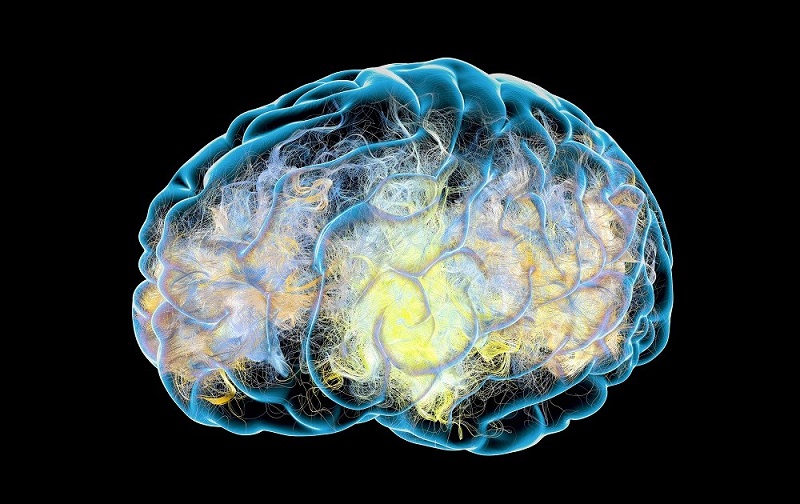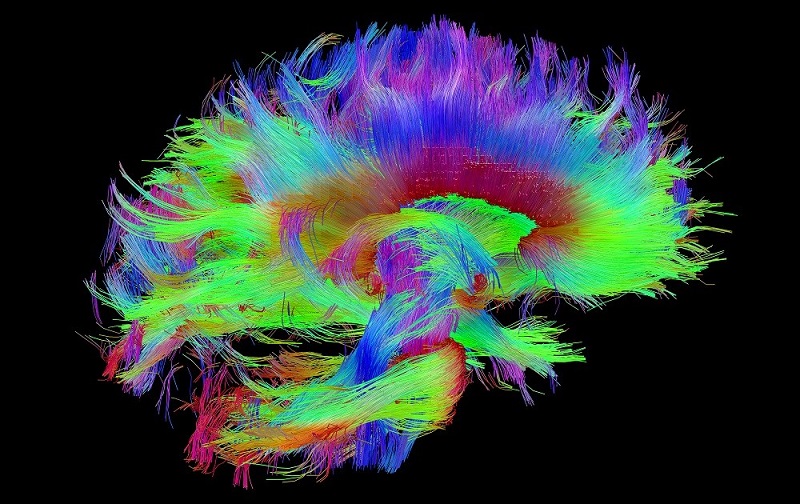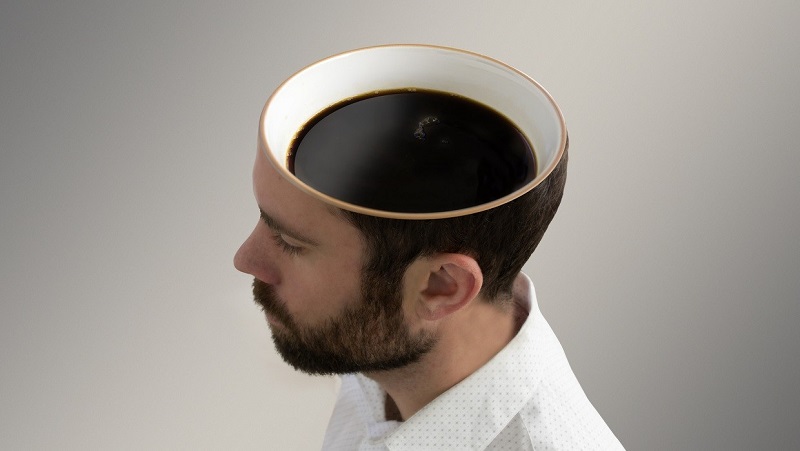Hunting Breakthrough Cures for Alzheimer’s Dementia and Parkinson’s Dementia (Best of 2017)
Summary: A wrap-up of the 2017 reports on the search for breakthrough treatments for Alzheimer’s, Parkinson’s disease, and other forms of dementia, showing the advancements made in understanding, treating and preventing these neurodegenerative diseases, including promising therapies in the pipeline. [This article first appeared on LongevityFacts.com and was updated on March 21, 2018. Author: Brady Hartman. ]
During all of 2017, researchers made advances towards understanding what causes Alzheimer’s, Parkinson’s and other forms of dementia. During the year, brain scientists announced they have many promising treatments for dementia in the pipeline. Moreover, researchers have suggested ways to prevent these disabling neurodegenerative diseases.
Here’s a wrap-up of advancements made in understanding, treating and preventing dementia.
Progress Made in Understanding Dementia
Researchers expect the rates of Alzheimer’s, Parkinson’s and other forms of dementia to nearly triple. To counter this epidemic, a large proportion of the medical research community is studying neurodegenerative diseases. Gaining a better understanding will help scientists develop new strategies to diagnose, treat, and prevent dementia.
In the previous two decades, researchers made tremendous strides in understanding how dementia affects the brain, and during 2017 pharmaceutical companies and research organizations worked steadily to find cures for Alzheimer’s, Parkinson’s and other forms of dementia. In fact, the U.S. National Institutes of Health (NIH) upped its research budget aimed at finding cures for neurodegenerative diseases.
During 2017, scientists furthered their understanding of how the brain ages and the processes that underly dementia.

1. Genetic Brain Aging Clock
In the middle of 2017, researchers announced they discovered a genetic clock which tracks brain aging. Researchers are sure this is a biomarker of the aging process in the brain, however, aren’t sure if the clock can be manipulated to slow down the aging process.
Article link: Genetic clock measures brain aging.
Alzheimer’s is a Disease of Aging
Alzheimer’s is a chronic disease of aging and our odds of getting any form of dementia increase with age. In fact, some form of dementia affects about half of the population age 85 years or older.
Alzheimer’s and Parkinson’s are forms of dementia, a group of neurodegenerative diseases which affect thinking, emotion, memory, and behavior. Alzheimer’s disease is the most common form of dementia, comprising more than half of diagnoses. Dementia leads to the gradual deterioration in our ability to think and remember things, due to physical changes in the brain. While there are over a hundred forms of dementia, other types of neurodegenerative diseases include vascular dementia and frontotemporal dementia.
Healthy brains shrink slightly between the ages of 50 and 80 says neuroscience Professor William Klemm, Ph.D., of Texas A&M University. Klemm adds that a known cause is the over-secretion of cortisol due to stress, but perhaps there are also other causes. As our brains grow smaller, we don’t lose loads of brain cells. It is not so much that brain cells die but that their terminals and synaptic junctions shrivel.
Moreover, a 2011 study published by researchers at the University of California Davis (UCD) shows that certain lifestyle factors hasten age-related brain shrinking, including high blood pressure, diabetes, cigarette smoking and being overweight or obese. The UCD study included 1,352 adults with an average age of 54 and without dementia at the start of the study.
Those of us who have lived with an older relative have observed the mental changes that come with age. Some are fortunate to have a little memory loss, and others are devastated by full-blown dementia. While researchers know that the brain ages, they are unable to stop the decline.
In fact, we keep a lot of our brain cells throughout life; it’s just that the brain cells shrivel up, getting a bit smaller; the contacts between each brain cell reduce in number, and so they function a bit more slowly. That’s why as we get older we have problems with day-to-day tasks and everyday remembering.

2. Key Underlying Alzheimer’s Disease.
Neurodegenerative diseases are partially caused by the build-up of debris due to a decline in the cellular housekeeping process known as autophagy. British researchers discovered what may be the key to stopping this breakdown in cellular housekeeping.
Article link: Researchers discover key underlying Alzheimer’s disease.
Making Progress On Dementia Treatments
With Alzheimer’s at its core, dementia is a leading cause of death and disability. Around 10 million people live with Parkinson’s and more than 44 million live with Alzheimer’s disease. As medical advances lengthen our lifespans, the rates of dementia will continue to climb. The World Health Organization (WHO) estimates that 47 million people worldwide are currently living with dementia and projects that number to increase to 75 million by 2030. Moreover, WHO projects that the number of cases of dementia will nearly triple by 2050.
To ward off this coming tsunami, scientists are working hard to develop promising treatments for these crippling diseases of the brain. Despite the improved understanding of neurodegenerative diseases, disease-altering therapies have remained elusive. With no new drugs in 16 years and recent drugs failing in clinical trials, researchers are taking novel approaches to finding cures for neurodegenerative diseases.

3. Novel Treatments for Alzheimer’s Disease
The prime suspect in Alzheimer’s disease is the buildup of amyloid beta plaques in the brain. However, scientists have not reached a consensus on whether amyloid beta plaques are the origins of Alzheimer’s or a merely a symptom of the underlying cause. The amyloid plaques are possibly benign because similar plaques are found in older adults without symptoms of Alzheimer’s disease. With the amyloid plaque theory now in doubt, researchers are considering alternative approaches.
Scientists are in a race to be the first to develop a cure for dementia and are approaching the problem in different ways. As the attached report shows, some researchers have shifted focus to other avenues of attack, such as tau tangles and brain inflammation.
Article link: Scientists developing novel treatments for Alzheimer’s disease.

4. Precision Treatments for Alzheimer’s Disease.
Some scientists propose tailored treatments as the best way to fight Alzheimer’s disease.
In July 2017, a group of scientists at New York’s Mount Sinai published an opinion letter in Scientific American that advocated the development of precision treatments with multiple drugs as a way to treat Alzheimer’s disease.
In the opinion piece, the brain scientists say that the research community is focusing on the wrong culprit. Instead, the authors Bartfai, Gandy, Lees, and Mano propose the development of precision treatments using multiple drugs to ward off the ravages of Alzheimer’s disease.
Article link: Precision treatments eyed as a solution to Alzheimer’s disease.

5. Diabetes Drugs Holds Promise for Alzheimer’s Disease
In 2017, researchers at Lancaster University discovered a promising Alzheimer’s treatment based on type 2 diabetes drugs. The scientists announced that the treatment that ‘significantly reversed memory loss’ in mice with Alzheimer’s disease.
Diabetes is a risk factor for Alzheimer’s disease, and researchers have implicated diabetes in the progression of the debilitating condition. In fact, some researchers refer to Alzheimer’s disease as “type 3 diabetes.” Researchers have linked impaired insulin to cerebral degenerative processes in Alzheimer’s disease and type 2 diabetes. Scientists have also observed insulin desensitization in the brains of patients with Alzheimer’s. Because insulin is a growth factor with neuroprotective properties, the desensitization could play a role in the development of neurodegenerative disorders.
Article link: Diabetes drug ‘significantly reversed memory loss’ in mice with Alzheimer’s.

6. Scientists Hunt for Parkinson’s Disease Cures.
Parkinson’s disease is a long-term neurodegenerative disorder named after the British doctor James Parkinson. The disease afflicts about 1% of adults over the age of 60, and the incidence increases with each birthday. Parkinson’s disease mainly affects the motor system by causing the death of the brain cells that secrete dopamine, a compound necessary for muscle movement. The symptoms come on slowly over time. Early in the disease, the most apparent symptoms are shaking, rigidity, slowness of movement, and difficulty in walking.
A 2017 report shows that researchers continue to hunt for effective treatments for Parkinson’s disease. Scientists are working on novel treatment approaches using autophagy enhancers, gene therapy, and brain mapping.
Article link: The search for Parkinson’s disease treatments.

7. Coffee Improves Brain Health Say Researchers
Scientists have good news for moderate regular coffee drinkers. Large observational studies have found that coffee and tea drinkers have a reduced risk of developing Parkinson’s and Alzheimer’s.
The authors of an extensive systematic review reported that people who drank three cups of coffee daily had a 29% lower risk of Parkinson’s disease. The study authors added that more is not necessarily better and consuming five cups didn’t seem to provide an extra benefit.
The case for Alzheimer’s is even better. Observational studies show that moderate regular coffee drinkers have a 65% lower risk of getting Alzheimer’s disease.
Correlation does not imply causation, but it sure is a hint. Observational trials are a weaker form of evidence. Researchers have yet to conduct randomized controlled trials which would confirm that coffee protects against Alzheimer’s or Parkinson’s.
Article link: Coffee drinkers have lower rates of Alzheimer’s and Parkinson’s.
Preventing Alzheimer’s and Dementia
The major risk factors for Alzheimer’s are older age, the ApoE e4 gene variant, and metabolic syndrome. Family history is the second most common risk factor, and approximately 20% of people afflicted with Alzheimer’s disease have had two or more first-degree relatives also affected.
The failures with Alzheimer’s treatments are leading researchers to the realization that an effective treatment may have to begin long before symptoms appear. Such therapies could prevent the build-up of amyloid plaques and neurofibrillary tangles before the disease takes hold.
The idea of preventative treatment is nothing new. For example, patients with high blood pressure or diabetes are treated with a combination of two or three drugs to head off complications down the road. The authors of the Mount Sinai New York opinion piece say that one day, doctors will prevent Alzheimer’s disease in the same way they ward off heart disease – with a cocktail of drugs.
Prevention is easier than a cure, and perhaps prevention or early intervention will be the ultimate solution to the Alzheimer’s problem.

8. Drugs That Prevent Alzheimer’s Disease In Mice.
Researchers reported several drugs that prevent Alzheimer’s in mice, including rapamycin, metformin, resveratrol and NAD boosters. What works well in mice, often doesn’t work well in humans. Scientists are not sure if these compounds can prevent Alzheimer’s in people, as this would require clinical trials.
Article link: Scientists report these drugs prevent Alzheimer’s disease in mice.
Bonus Articles from 2018
Researchers show that injecting the protein klotho restores brain function in mice afflicted with a condition similar to Alzheimer’s.
Researchers at the Salk Institute are developing a new blood test for Alzheimer’s with a 90% accuracy that detects traces of dementia as long as 3 decades before symptoms.
Bottom Line
Since 2000, researchers have conducted nearly 200 clinical trials of promising new treatments for Alzheimer’s disease and 99 percent of those have failed. The few that succeeded haven’t given us a drug that does much to treat dementia.
This should tell us that we’re doing something wrong in our approach to the diseases of aging such as dementia. Unlike infections, dementia is caused by the slow, gradual buildup of damage to our brains over decades.
As Benjamin Franklin said, “An ounce of prevention is worth a pound of cure.” Geroscientists have reported several compounds that prevent Alzheimer’s in mice. Unfortunately, the pharmaceutical industry won’t touch these substances because they are off patent. Instead, Big Pharma exclusively focuses on developing new drugs. New compounds are patentable and quite lucrative, especially those for chronic conditions where the patient has to take the medication for the rest of his life.
Show Us Some Love
- Share this post on social media and help us spread the word– It only takes one click on any of the social media links on this page.
- Follow us on social media – Google+ or Reddit
- Sign up for our email list – We use your email to notify you of new articles. We will not send you spam, and we will not share your email address. You can cancel at any time.
- Tell us what you think – Scroll down to enter your comments below.
References
Cover photo: Kirill Kedrinskiy/Hasloo Group (adapted) via Getty Images/iStock
Disclaimer
Diagnosis, Treatment, and Advice: This article is intended for educational and informational purposes only and is not a substitute for qualified, professional medical advice. The information and opinions provided herein should not be used during any medical emergency or for the diagnosis or treatment of any medical condition. Consult a qualified and licensed physician for the diagnosis and treatment of any and all medical conditions. Experimental dementia treatments carry a much higher risk than FDA-approved ones. Call 911, or an equivalent emergency hotline number, for all medical emergencies. As well, consult a licensed, qualified physician before changing your diet, supplement or exercise programs.
Photos, Endorsements, & External Links: This article is not intended to endorse organizations, companies, or their products. Links to external websites, mention or depiction of company names or brands, are intended for illustration only and do not constitute endorsements.

At present there is no treatment to restore end stage damage to heart, lungs, kidney, pancreas, so prospects for “treatment” of end stage brain damage for AD seems extremely remote. However, prevention is entirely different story. As regards prevention, the most important thing to know is your APOE4 status. If APOE4 carrier, mean age onset 75 years and 30% lifetime risk. If not E4 carrier, mean age onset 85 years and 9% lifetime risk. Extra bonus for non-E4 carriers, family history AD does not increase risk. If E4 positive, family history or no family history, two fold change in risk.
The most important thing to know if APOE4 carrier is you can greatly change your risk of AD with lifestyle factors including kind of diet and amount of calories and physical activity. If APOE4 carrier, you must become an expert. If not APOE4 carrier, be happy, you won genetic lottery. See http://www.alzheimer-prevention.com for what should know if APOE4 carrier.
Extremely important and very well written article i think you have covered all things related to this topic… I recommend this blog to my all friends and relatives to check it once..
Great post. Keep up good work. Good luck Share on Facebook.
Good job.